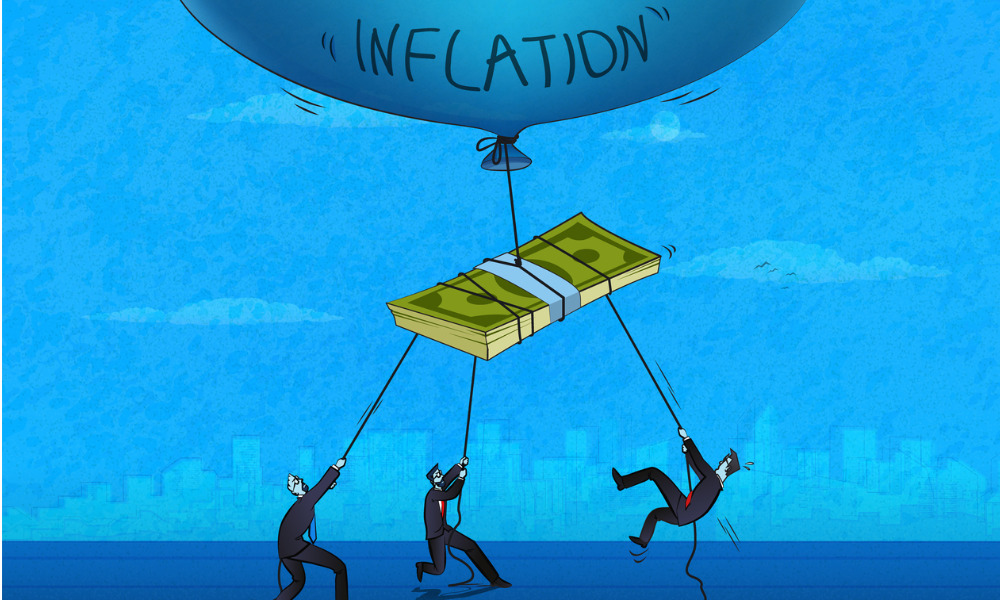

BlackRock Inc.’s Rick Rieder has some advice that bucks conventional wisdom: The best way for the Federal Reserve to temper inflation will be to lower rates, not hold them higher.
That’s because well-heeled Americans are earning more than they have in years from fixed-income investments, given that benchmark rates remain on hold at their highest level in a generation, according to Rieder, BlackRock’s chief investment officer of global fixed income.
“I’m not certain that raising interest rates actually brings down inflation,” Rieder told Bloomberg’s David Westin for an upcoming episode of Wall Street Week airing Friday. “In fact, I would lay out an argument that actually if you cut interest rates, you bring down inflation.”
Middle- to higher-income Americans “are getting a big benefit from these interest rates,” he said. “We’re moving to a service-oriented economy, more money is being spent on services, but actually what’s happening — because goods prices have come down so much — it’s allowing for disposable income to go into services.”
Rieder pointed to sticky inflation across service sectors, like auto and health insurance, as evidence. “They’re unresponsive to interest rates and people are spending — older people, middle- to high-income are spending — and are keeping that service-level inflation at high levels.”
“The price of a pair of tennis shoes is what it was 20 years ago. If you go to a tennis match, it’s double what it used to be,” he added.
Still, not all market watchers are ready to overturn a fundamental tenet of monetary policy — that higher borrowing costs ultimately stifle economic activity and, consequently, inflation.
“A lot of the inflation that’s going away now, I think I would agree, isn’t being driven by the hiking in monetary policy, at least from the peak,” Seth Carpenter, chief global economist at Morgan Stanley, told Bloomberg Surveillance on Friday. “But, I personally am skeptical that everything — the empirical literature on how monetary policy works — is just flat out wrong. I would disagree on the fundamentals.”
Bond markets rallied Wednesday after a report showed that headline growth in consumer prices eased in April, with swaps traders ramping up bets that the Fed will ease by as many as two quarter-point cuts come December. But inflation data has also showed that for some areas of the service economy — from shelter costs to auto insurance and medical care — price growth is proving harder to tame.
Still, “the worst fears were allayed” with the release of the April CPI data, BlackRock’s Rieder said. “As long as you’re price stable, employing a lot of people, growing the size of the workforce, and moderating a little bit on the growth side, it’s pretty good.”

Relationships are key to our business but advisors are often slow to engage in specific activities designed to foster them.

Whichever path you go down, act now while you're still in control.

Pro-bitcoin professionals, however, say the cryptocurrency has ushered in change.

“LPL has evolved significantly over the last decade and still wants to scale up,” says one industry executive.

Survey findings from the Nationwide Retirement Institute offers pearls of planning wisdom from 60- to 65-year-olds, as well as insights into concerns.
Streamline your outreach with Aidentified's AI-driven solutions
This season’s market volatility: Positioning for rate relief, income growth and the AI rebound
